
Basil: From Kitchen Staple to Natural Medicine Cabinet
Cynthia KolfBasil, the fragrant herb on your windowsill or growing in your garden, is well-known for its culinary uses. This leafy green is so tasty—who can turn down a yummy pesto? But did you know it's a great medicinal herb, too? Let's explore why you should consider planting basil in your medicinal herb garden.
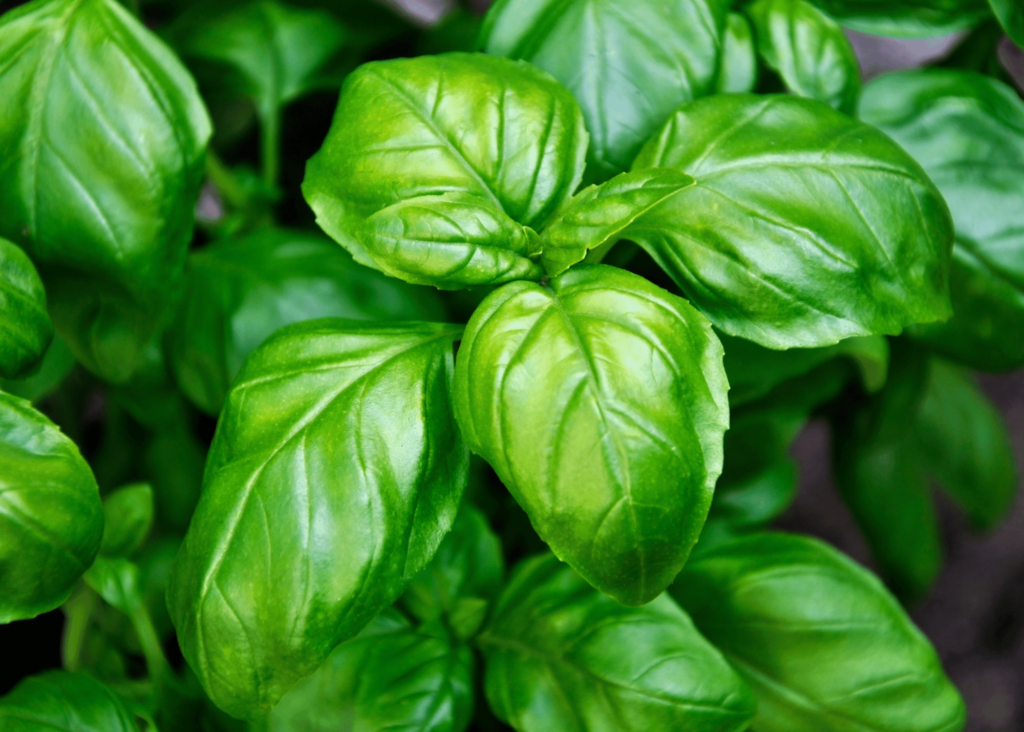
Important Precautions
While basil is generally safe for most people in culinary amounts, it's important to be aware of potential interactions with medications or health conditions.
Basil's Limitations: Knowing When to Say No
Even the most wonderful herbs have limitations. Here's when to be cautious with basil:
- Pregnancy and Breastfeeding: Basil may affect hormones. It's best to avoid using basil medicinally during pregnancy or breastfeeding.
- Blood Thinners: Basil may interfere with blood clotting medications. If you take blood thinners, consult your doctor before using basil medicinally.
- Surgery: Basil may increase bleeding risk. Stop using basil at least 2 weeks before any scheduled surgery.
- Allergy Alert: As with any plant, basil allergies can occur. If you experience any allergic reactions after using basil, discontinue use immediately.
Remember: When in doubt, consult your doctor before using basil medicinally, especially if you have any underlying health conditions or are taking medications. I am not a medical professional, and cannot give medical advice.
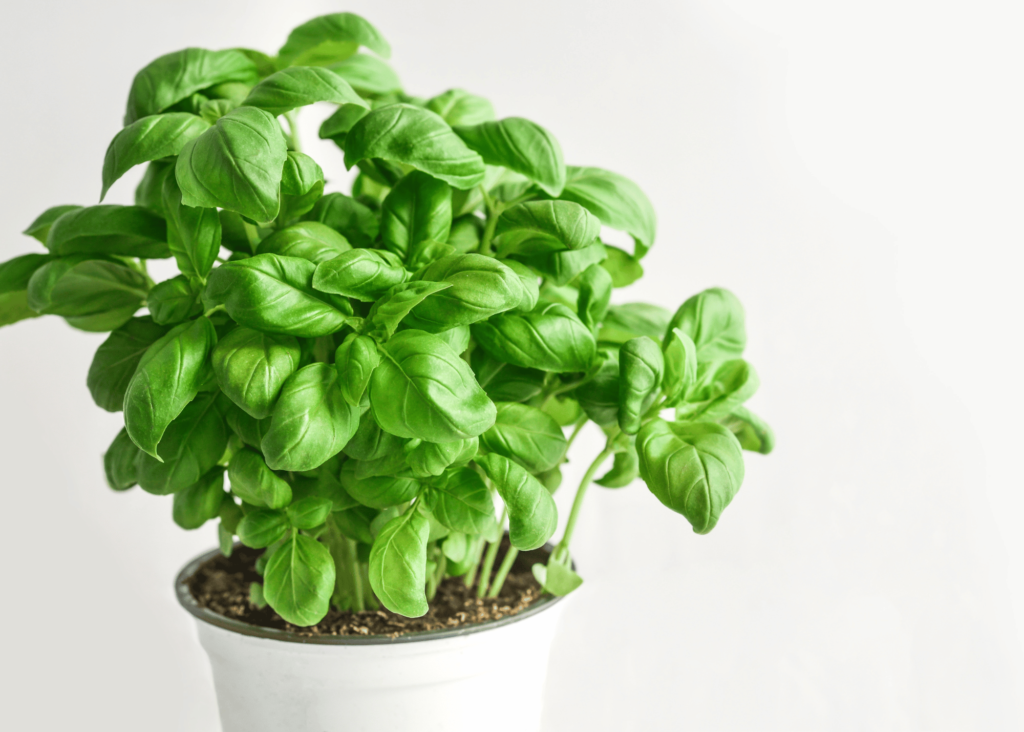
Unlocking Basil's Medicinal Powers
Basil’s superpowers come from its essential oils like eugenol and linalool. These oils make basil smell great and fight inflammation, which can help with many health problems. Here’s how basil can benefit you:
- Soothe Soreness with Basil: After a long day of prepping, basil can ease your muscle and joint pain. Make a pain-relieving tea by steeping fresh leaves in hot water, or create a cool compress by mashing leaves and wrapping them in a cloth.
- Tame Tummy Troubles: Basil helps with digestion! It can ease cramps and bloating and even stimulate your appetite. Feeling sick? Add some fresh basil leaves to your morning smoothie or chew a couple after a heavy meal.
- Basil Battles Bugs: Basil’s strong scent can help keep mosquitoes away. Plant basil near patios and doorways, or rub the leaves on your skin (do a patch test first!).
- Basil Banishes Breathing Issues: Got a scratchy throat or cough? Basil's antibacterial properties can help. Gargle with lukewarm basil tea or inhale the steam for natural relief.
How to Use Basil
Basil can be utilized in various ways to harness its medicinal properties. Enjoy its benefits by making soothing basil tea. For topical relief, create a basil oil infusion. Additionally, relieve muscle soreness with a cool compress made from mashed basil leaves wrapped in a cloth.
Whether brewed, infused, or applied, basil offers natural remedies straight from your garden to enhance your well-being.
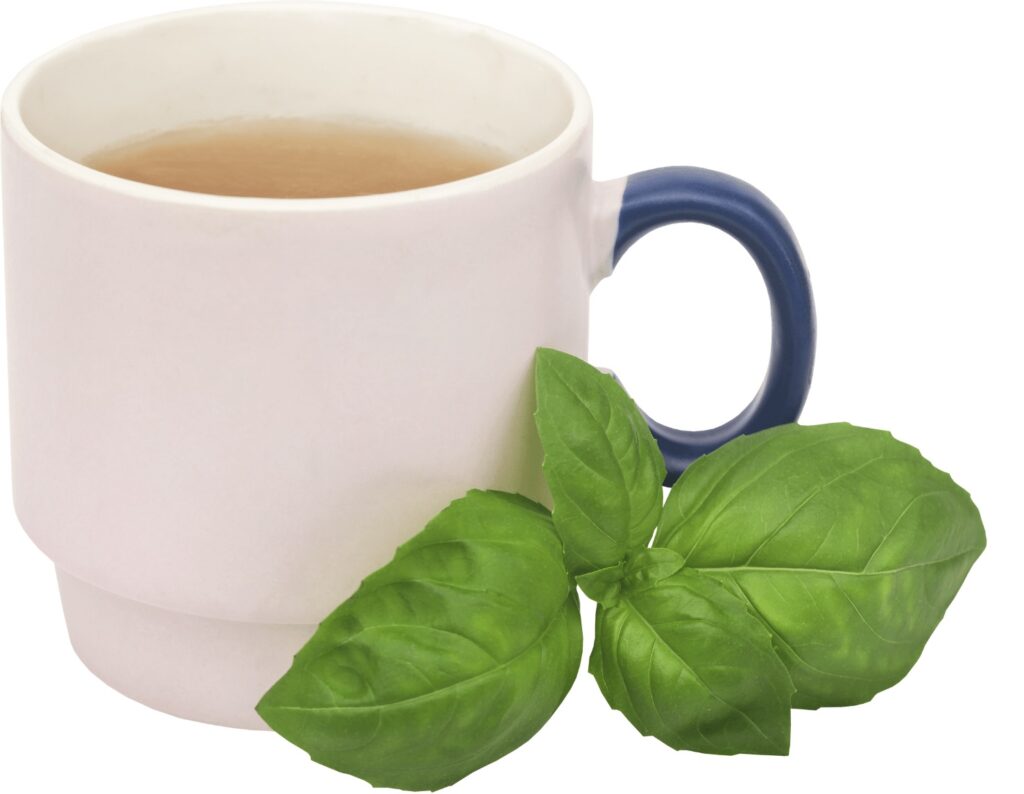
Basil Tea
- Boil water.
- Add a handful of fresh basil leaves to a cup.
- Pour hot water over the leaves.
- Let it steep for 5-10 minutes.
- Strain and enjoy your soothing tea.
Basil Oil
- Fill a jar with fresh basil leaves.
- Pour olive oil over the leaves until they're fully covered.
- Seal the jar and let it sit in a sunny spot for two weeks.
- Strain the oil into a clean jar.
- Use the oil for massages or as a salad dressing for its health benefits.
Basil Compress
- Mash fresh basil leaves.
- Wrap the mashed leaves in a clean cloth.
- Apply the cloth to sore muscles or joints for pain relief.
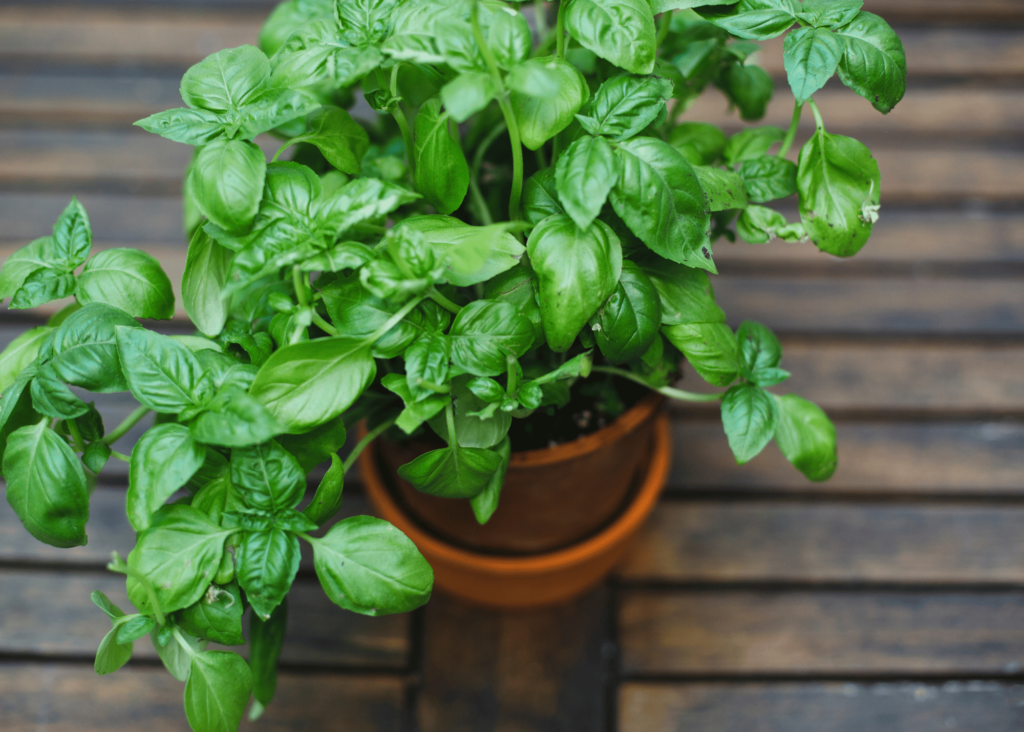
Grow Your Own Medicine
The best part about using basil for medicine? You can grow it yourself! Here’s how:
- Warmth and Sun: Basil loves warmth and sunshine. Start seeds indoors a few weeks before the last frost, or get a young plant from a nursery. Basil seeds germinate best in temperatures between 70-75°F. Once the seedlings have two sets of true leaves, you can transplant them outdoors. Of course, here in 10A, we can directly sow seeds outdoors.
- Sunny Spot: Choose a sunny spot with well-drained soil. Basil needs at least 6-8 hours of direct sunlight each day to thrive. If planting in a garden bed, space the plants about 12-18 inches apart to allow for good air circulation and growth.
- Soil Preparation: Basil prefers rich, moist soil with a pH between 6.0 and 7.5. Before planting, mix in compost or well-rotted manure to improve soil fertility and drainage.
- Water Wisely: Water your basil regularly, aiming to keep the soil consistently moist but not waterlogged. Basil does not like to sit in soggy soil, as this can lead to root rot. Water at the base of the plant to avoid wetting the leaves, which can encourage fungal diseases.
- Pinch Plants: Regularly pinch off flower buds to encourage bushier growth and keep your basil producing fresh leaves. Pinching the top sets of leaves will also promote a fuller plant. You can start harvesting basil leaves once the plant is about 6-8 inches tall.
- Pests and Diseases: Watch out for common pests like aphids, spider mites, and whiteflies. These can be controlled with insecticidal soap or neem oil. Also, be aware of fungal diseases such as downy mildew, which can be prevented by ensuring good air circulation around the plants and avoiding overhead watering.
- Harvesting: Harvest basil leaves in the morning when the essential oils are most concentrated. Pick the leaves regularly to encourage new growth, but avoid taking more than a third of the plant at a time to keep it healthy and productive.
By following these tips, you can enjoy a bountiful harvest of basil throughout the growing season, ensuring you have a steady supply of this versatile herb for both culinary and medicinal uses.
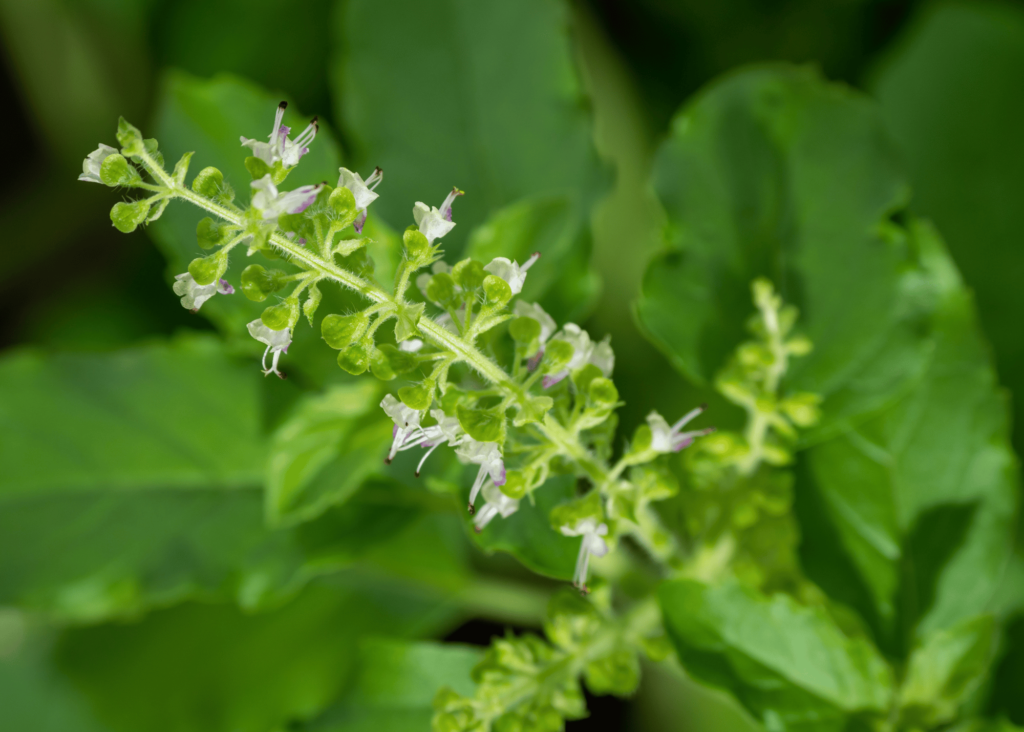
Basil: Your Garden's Medicinal Secret
Next time you visit your garden, remember the power of basil. This versatile herb not only makes your meals tastier, but it's also a natural remedy waiting to be discovered. With a little planning and care, you can grow your own natural medicine cabinet. Basil is a great addition to your prepping supplies, ensuring you have a flavorful and effective remedy on hand.
Additional Resources:
Gardening Know How: How to Grow Basil Plants
University of Florida/IFAS Extension: Basil
University of Minnesota Extension: Growing Basil in Home Gardens
